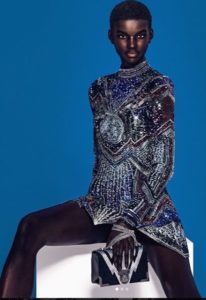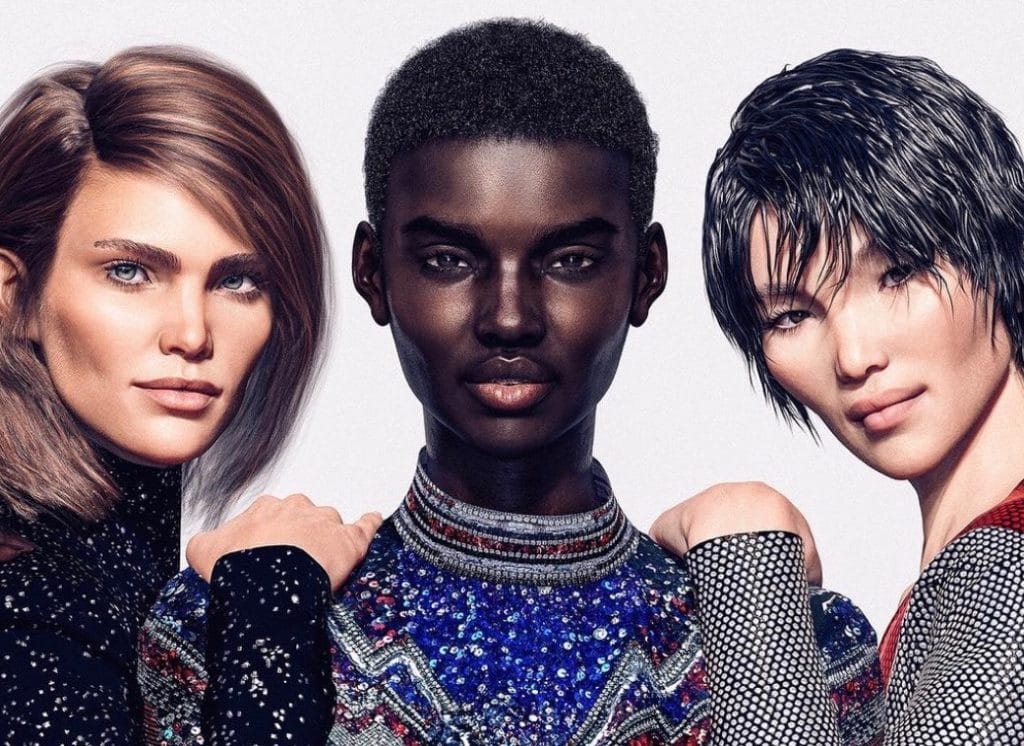A teenage model who’s shared thousands of highly stylized photos over the last two years has recently been sharing her innermost thoughts: “Because of the weird public life I’ve had,” she says, “I think sometimes I don’t appreciate and count my blessings.”
The writer is Lil Miquela, a virtual model with 1.4 million Instagram followers, and the creation of Brud, a Los Angeles-based startup applying artificial intelligence to the media industry. The 19-year-old (she hasn’t aged in the three years) has posed for fashion brands ranging from Prada to Diesel.
The emergence of digital models like Lil Miquela and other virtual personalities is raising worries that they set impossible beauty standards and take jobs away from human models.
Alienation and creepiness—there’s always the temptation to study what looks off and what could pass for real—also surface in discussions about these avatars. Psychologists warn that sleep deprivation, loneliness and depression are already resulting from screen addiction and impersonal digital interactions.
Even Lil Miquela, via her creators, ponders her impact: “It’s some creepy sci-fi stuff for sure which is maybe why I try not to think about it.”

Julie Scelzo, global executive creative director for New York-based mcgarrybowen, can’t believe it. “People do not want fake news and the younger millennial target hates being lied to, so I’m fascinated that it’s taking off,” she said.
“Facebook and Instagram pride themselves on having real people on their platform; you have to use your real name,” says Scelzo, who leads the agency’s American Express business and has also worked for Facebook’s Creative Shop and Pandora. “I cannot tell you how many studies I’ve read about authenticity… It’s so messed up, I don’t know what to make of it. Are creators living vicariously through this avatar?”
In another respect, virtual models are a return to the gatekeeping role that PR people had before social media, and it’s especially the case when Lil Miquela does interviews. Someone on the corporate side is the puppet master.
“Brands can’t tell Naomi Campbell what to say,” says Marc Landsberg, CEO of Chicago-based agency Social Deviant. “With virtual models, brands control absolutely everything.”
Landsberg says Lil Miquela and other virtual models such as Shudu are a logical and inevitable progression of augmented reality (AR) and virtual reality (VR), which brands from NASCAR to BMW are using in their advertising, not to mention the virtual worlds created over the years in gaming.
“It’s another tool in the tool kit,” he says, referencing Prada’s use of Miquela in social media during Fashion Week Milan. “It’s not the only thing Prada is doing.”
The overlap between reality and fantasy likewise perplexes the very 20-somethings that lifestyle brands are trying to reach.
Chrystee Brineger, a marketing major at Florida Atlantic University, signed out of her social media accounts to get away from social pressures put on people her age. “I know the pain that girls feel when they see girls with perfect bodies and are half-naked. If you don’t have a million followers and meet the standard, how do you fit in?”
Still, she wishes she had known about virtual models while doing advertising plans in class. “You could tailor an avatar to reflect literally what you want your brand image to be,” she says.
Virtual Models Have Issues IRL

Shudu is a creation of Cameron-James Wilson, a London photographer who has created virtual modeling agency The Diigitals. Black and tall, with 146,000 followers on her @shud.gram account, she is likewise stoking debate. While Wilson initially kept her digital-ness a secret until people started asking questions, she is now fully out as 3D. She starred in a virtual photo shoot in June’s WWD wearing digital replications of couture dresses.
“I’m not saying it’s not beautiful, I’m saying don’t share the pic without stating it’s not a real woman since this a page boosting real black women,” says Instagrammer @mybaldisbetter in a comment on a @Blackskinwomen post. Another user comments, “I don’t know what’s in @cjw_photo’s heart or if this should be labeled as racism…but what is very clear is that a WHITE MAN has found a way to profit (solely) from the use of a BLACK WOMAN.”
Jenny Banza, who emigrated several years ago from the Democratic Republic of Congo to the U.S., does not consider Shudu a racist product.
“In my opinion his work is quite brilliant and has inspired other black women to embrace their shades,” says the 20-year-old café server. “My only problem is the fact that other models will be out of business because of his creation.”
Banza prefers to follow real people like Rihanna and the singer, dancer and model Ciara. “She taught herself to dance – she wasn’t programmed to do it,” she says.
“Everyone wants motivation,” says Banza. “A virtual creation won’t tell us how she got where she is. In the real world, nothing is easy. You have to work at it.”
On that point, magazine executive Anthony Tamburrino is adamant. A photo shoot is “bringing creative minds together,” says Tamburrino, fashion stylist for the luxury magazine Think.
“The photographer, the makeup artist, everyone on site– it’s the synergy of a team of people who don’t necessarily know each other and learn to communicate and put in a fabulous day altogether,” he says.
But what if “going virtual” could actually heighten human experience? Some say virtual models provide the opportunity to test what works best for a brand, pushing boundaries with more agility and less risk.
“Should a client adopt this avenue, they are able to push the limits of data into everything from environments, to wardrobe, to personality, to every curl of every hair,” says David Weinstock, chief Creative officer of New York’s Decoded Advertising.
“Once they know what’s working with their audience, they can employ the bona fide flesh-and-blood human to be in their campaign with less risk,” he said. ”That way, the digital world is helping the real world run more efficiently without sacrificing the spontaneity and charm of humanity.”





Join the conversation